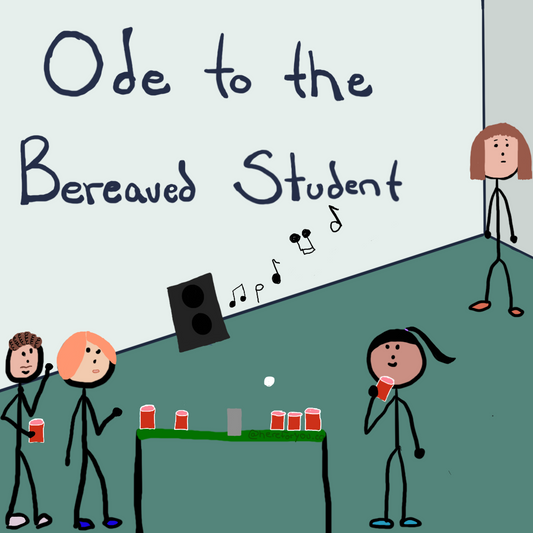When it comes to couples and immediate families, there’s usually one person who gets designated the role “Public Representative for All Correspondence with Relatives, Friends, and Whatnot”. This public rep is on point for wedding RSVPs and sending thank you cards, and on the whole, this arrangement works out ok in the context of an equitable division of household responsibilities. But when it comes to expressing condolences, it’s important that all parties show up. There's no, "Hon - be sure to sign my name on that sympathy card!" Sympathy by proxy is a lame-ass cop out. (Not cool, Ryan.)
(Not cool, Ryan.)
Sympathy by proxy is when there is a death or crisis, and only one person provides support, serving as the condolence ambassador for the family. Now, there are plenty of situations where an ambassador will work for the group. Basically, all other situations work with a proxy. Engagement? Marriage? New Job? New Baby? Move to a new house? Not everyone in the family needs to reach out to offer congratulations, one voice will usually suffice. But when it comes to compassion, it’s necessary for all adult members of the family to get in touch. There can't be just one representative. Anyone who is connected to the bereaved is expected to show up in some capacity.

It's easy to let one family member reach out and for the others to take a pass. We know that people are reluctant to connect because it's hard (really hard) to know what to say. They also stay quiet because they figure that if their family representative is closer to the person in crisis, then it makes sense for them to speak for the group. Perhaps they're worried that they will be an annoyance — they don't want to overwhelm someone going through a hard time. However, if you know the person, you need to reach out on your own behalf and not let your family member/partner do the heavy lifting. Its not expected that everyone support the person in crisis in the same capacity, but every person needs to connect.
Your absence will be noticed. They will think, "Beverly sent a text but why didn't I hear anything from Anne? We are together every Labor Day," or "Ronny helped me shovel snow after the accident but when I saw his wife she just waved and got in her car." This is one of the intricacies of supporting someone in pain that you don't think about until you are the person in pain. The bereaved are keeping score. They don't want to be — it's a total waste of mental energy — but they absolutely notice your silence and they will remember it for a really long time (likely forever).
What to do if you are guilty of sympathy by proxy
So let’s say you're at the grocery store and you run into an acquaintance 5 months after a devastating event. In seeing them you realize that you let your partner be your sympathy proxy. You will likely feel terribly awkward when you realize you haven’t spoken to this person since their life-altering moment, but your partner has sent a card, brought over food, etc. It is ok to say hello/how are you today and not say something more about your absence in the moment. It is hard when you’re caught off guard to say what you mean to say, and the person might not be ready for a grand gesture in a public space. What you can do is write a note afterwards, and apologize for not connecting sooner. You can also read their body language and see if they might be open to an apology on the spot. You could say something quick, and then if they look uncomfortable, you can elaborate in a letter or email at a later time.

I will be the first to admit that I've used sympathy by proxy many times. Within my immediate family, our family friends have suffered through the loss of children, siblings, parents or spouses and I often let my mom be my representative, not even thinking that they might like to hear from me too. My husband lost three family members in a four-month stretch in 2017, and I let him be my proxy. I think I had good reasons for doing that at the time (my sister had just died), but even still, it took me more than 6 months to check in. And I wanted to, it was on my mind, I wanted them to know that I cared. But it was so hard.
In the grief support hierarchy, silence is as about bad as you can get. Thankfully, I'm a firm believer that when it comes to compassion, later is definitely better than never. It often doesn't take much to let someone know you care — a text, a card, a voicemail. Let them know that you're thinking of them.

____
Here For You offers fully customizable care packages for family and friends living through life's toughest transitions. Our practical gifts range from curated household essentials to customizable sets of self-care items, all prepared with a personal touch.


